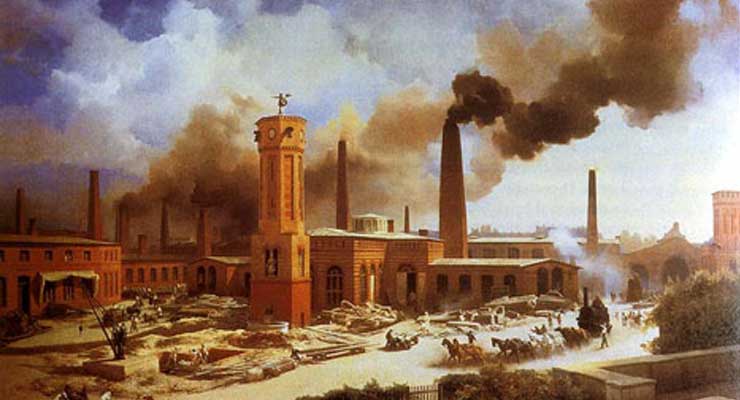
“Three families lived in this tiny space. On average, about 14 people.” Robert, our Edinburgh guide, spread his arms around a room that was approximately the size of the interior of a school bus. We were in the underground city, a portion of Scotland’s capital that had been buried for many years – and now lay vacant among the foundations of newer buildings.
Robert walked to the far end of the room and aimed his flashlight at a small lamp on a crude wooden stool. “The only fuels available in the 1600s were fish oil and animal fat. You can imagine how burning them made this room smell! But, even worse: these people bathed only once or twice a year.”
He took a couple of steps to the corner of the room and pointed his light at a wooden bucket. “To make matters worse, this served as the sole toilet for all those people. Can you imagine how that smelled?”
Without waiting for an answer he walked to the open doorway that led to the narrow “close,” the term used to describe the narrow steeply-sloping streets that characterized this historic community. “Twice a day the city bells rang and the youngest child who was strong enough to carry a bucket from each house went to the doorway and threw the contents out into the street.” He pointed up. “This house is on the bottom floor. Above it were five more stories, each with houses. All of them threw the contents of their buckets down into this same street.”
Robert stepped back into our tiny room and described the terrible diseases, including smallpox and the Black Plague, that infected the thousands of people who lived in Edinburgh in those days. “During the plague epidemic of 1645,” he said. “ten thousand citizens, a third of the population, died in less than six months.”
I left this underground city which officially is known as Mary King’s Close (named after an unusually successful businesswoman of the 1600s), walked out into bright sunshine, and sat down on a bench to watch the people of modern Edinburgh mingle with tourists. As I sat there, I kept hearing the words of one of the men in our group.
“How could they have been so stupid as to throw their feces into the streets?”
And the response of his wife who stood next to him in that tiny room. “They knew nothing about germs, honey. They had no idea human pollution spread disease.”
Human pollution. My thoughts immediately went to a newspaper editorial I had read that morning about Matthew, the hurricane that had just devastated Haiti. The author lamented the deaths of hundreds of people in a country without adequate warning systems. She also speculated about the causes of so many recent destructive acts of nature: hurricanes, floods, droughts, tornadoes, earthquakes, and the various other impacts of climate change. She ended by asking when human beings would become intelligent enough to understand that we cannot continue “defecating” into our earth, air, and water. I was struck by the fact that she used that word. Defecating.
It is easy enough for us to look back on history and wonder why people ever believed that the sun revolved around our planet, ships would fall off the edge of the earth, or raw human sewage dumped into the streets would spread killer diseases.
As I rested on that bench and watched people walk by on this street of what is one of the most fascinating and beautiful sections of any city I’ve ever visited, I couldn’t help wondering what a great grandson or granddaughter of mine sitting in this same spot – assuming that it exists when he or she is my age – will think about us.
Will future generations not marvel at our stupidity?
And then of course the follow-on question: Aren’t we intelligent enough to make sure they will not need to ask?
Let’s make certain that the answer to this question is a resounding YES.
Yes, we are intelligent enough to change.
Yes, we will listen to our hearts and minds, our intuition and our science.
Yes, we understand that we must stop defecating into our earth, water, and air. Stop all the pollution and the ravaging of resources. Cease relying on violence – to the earth, plants, animals, and other people. Stop killing each other.
It is time to stop blaming “them” and admit that it is up to “us” to turn failing systems into successful ones. It is time that we listened to the voices that come from underground cities everywhere, to the voices of our ancestors who warn us against trying to solve today’s problems with yesterday’s tools, who urge us – command us – to rise to a consciousness that will provide a world that future generations of all species will want to inherit. Yes, to no longer throwing our human pollution into the streets of life.
Leave a Reply